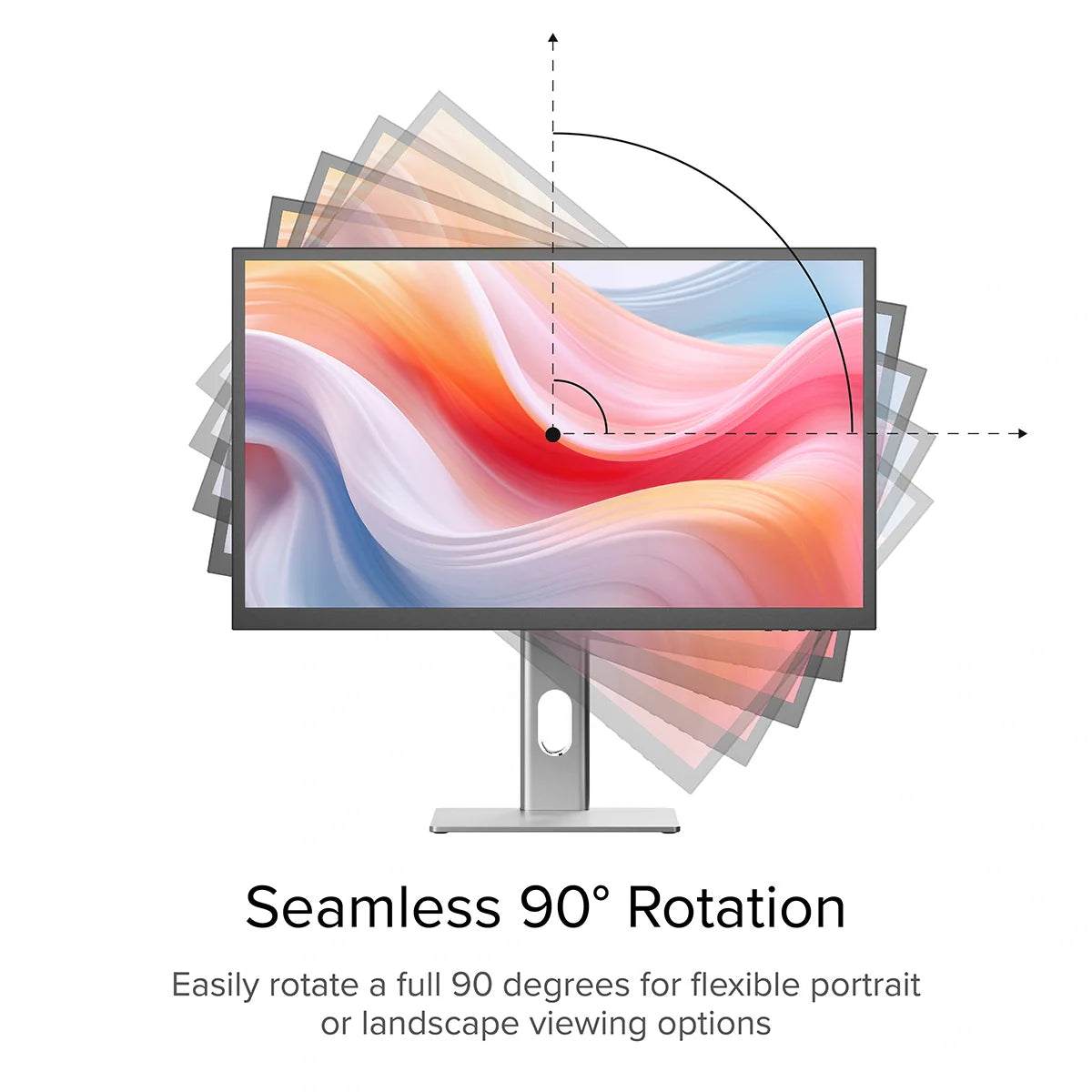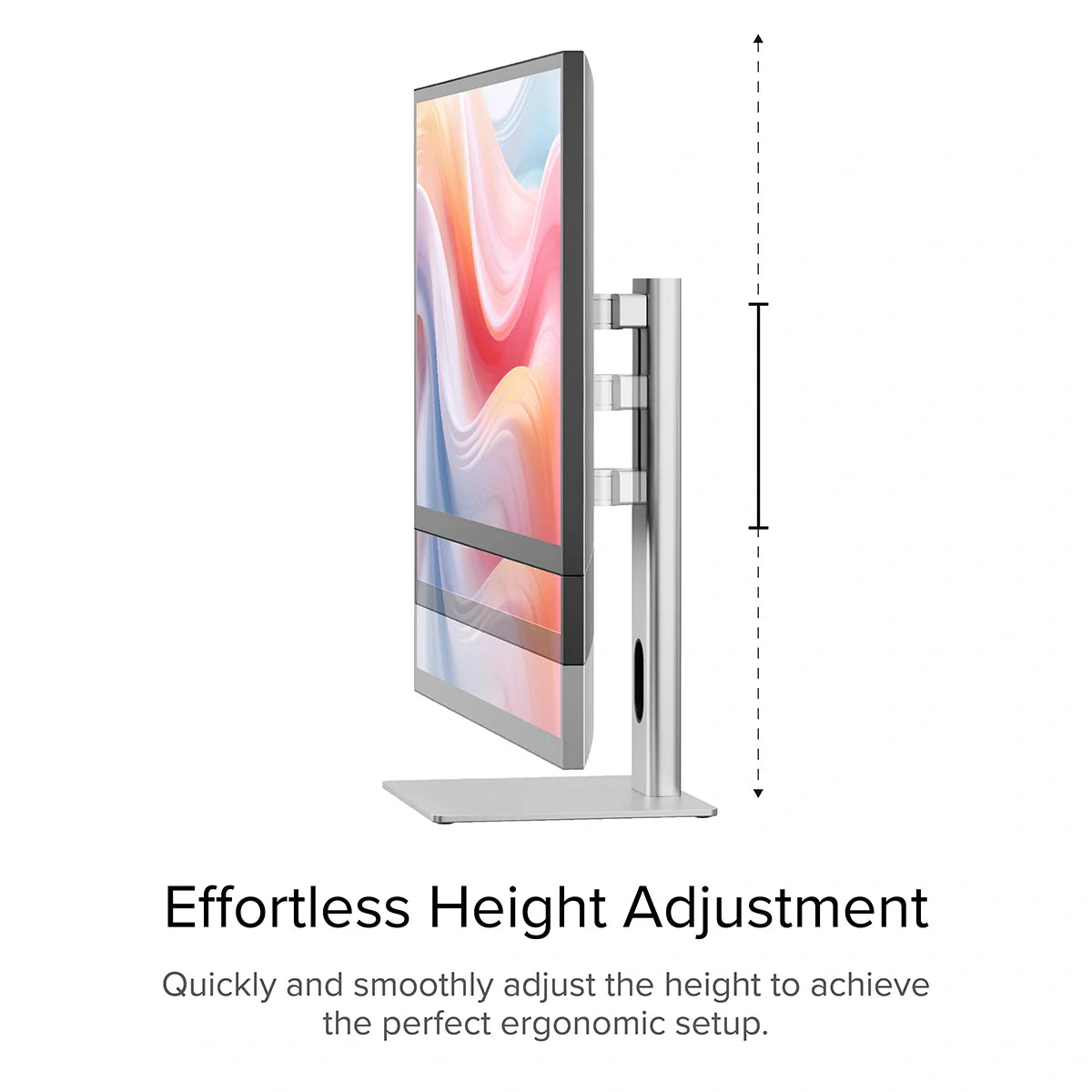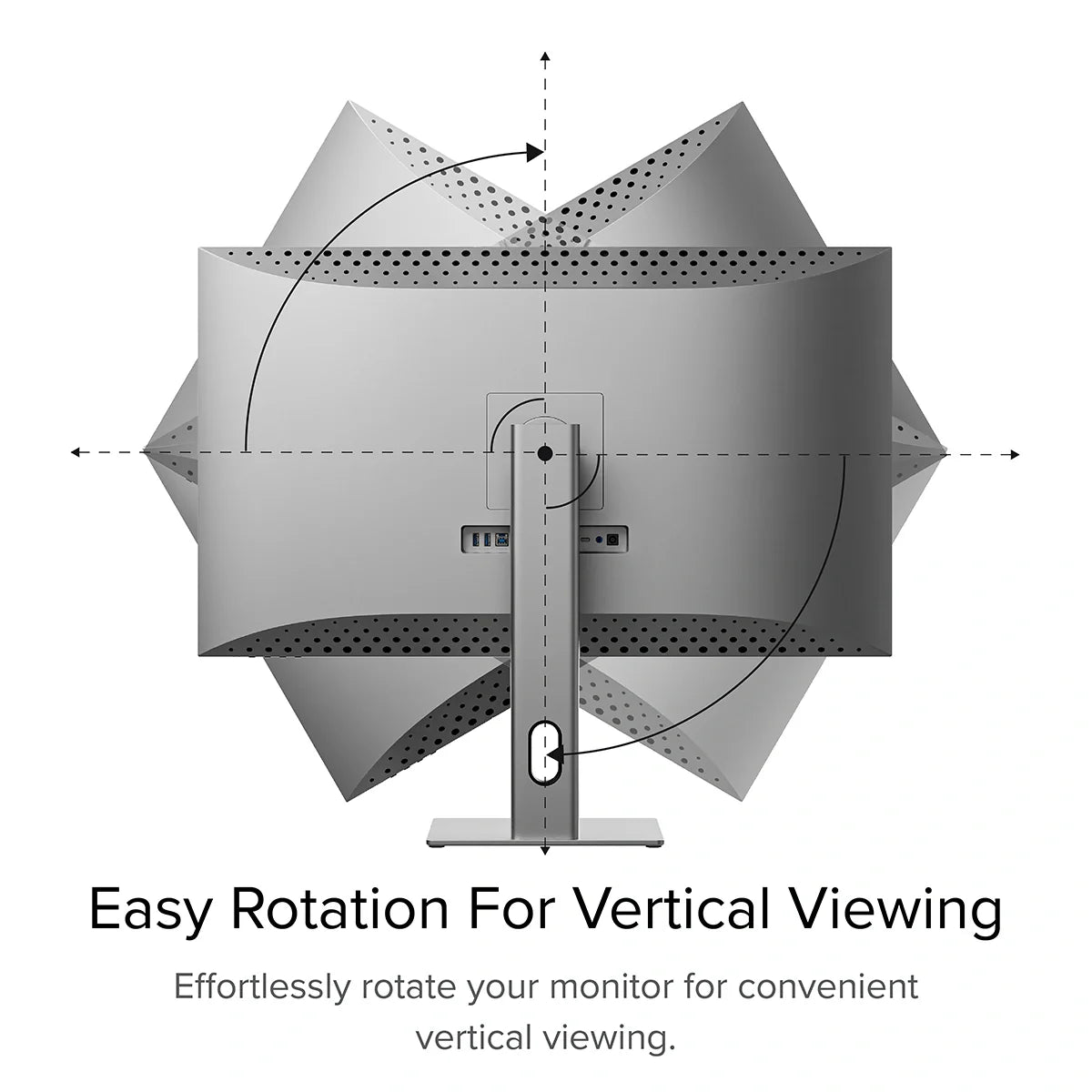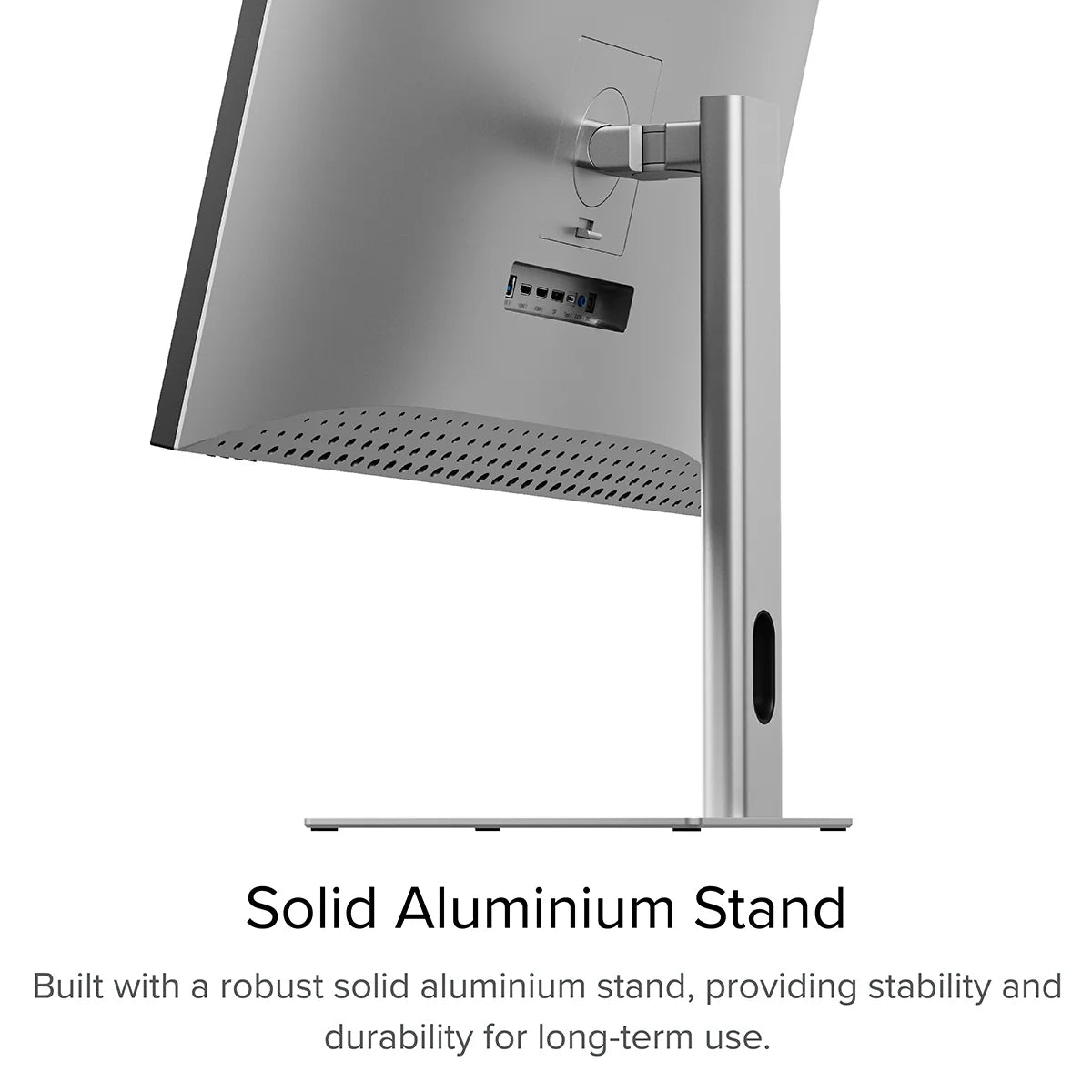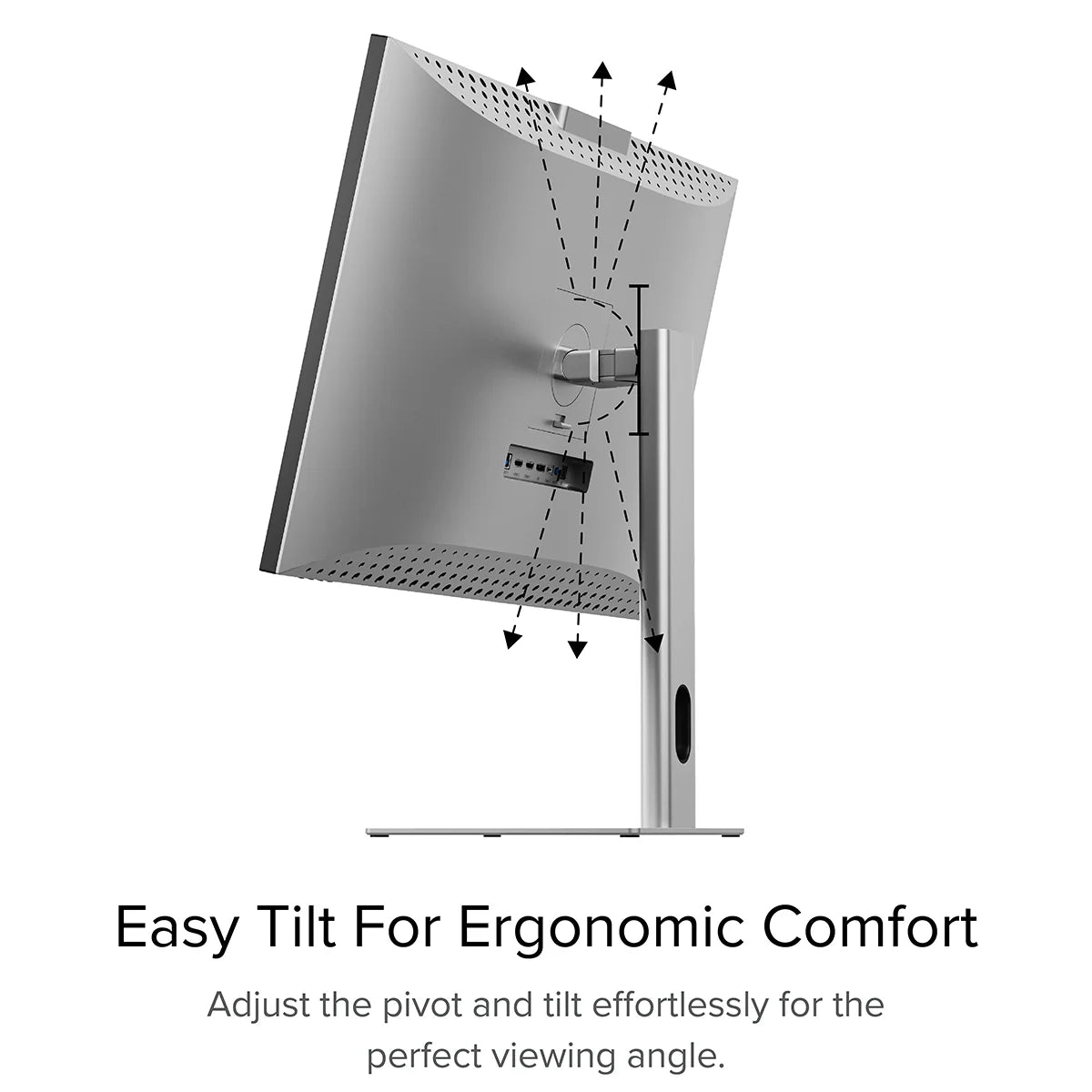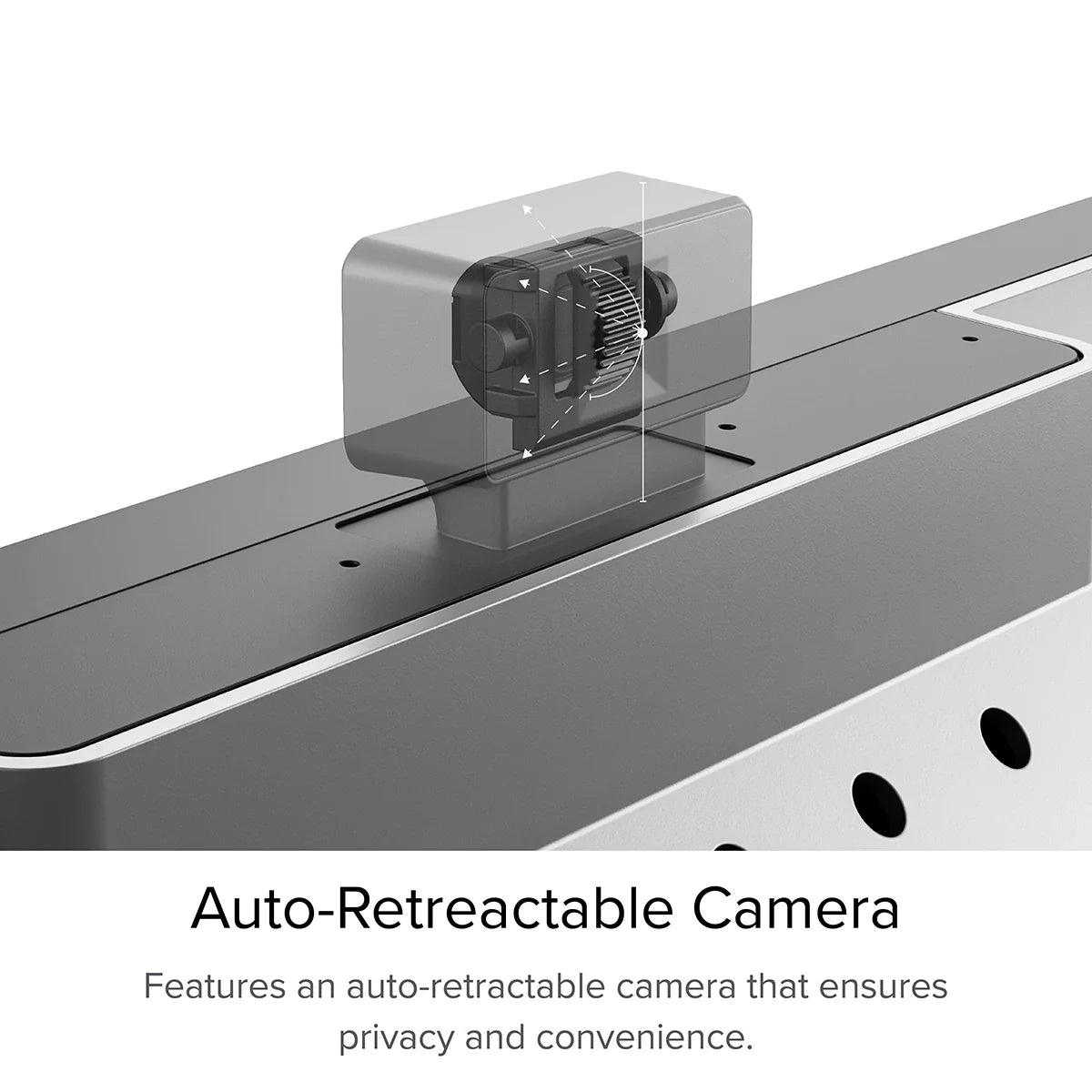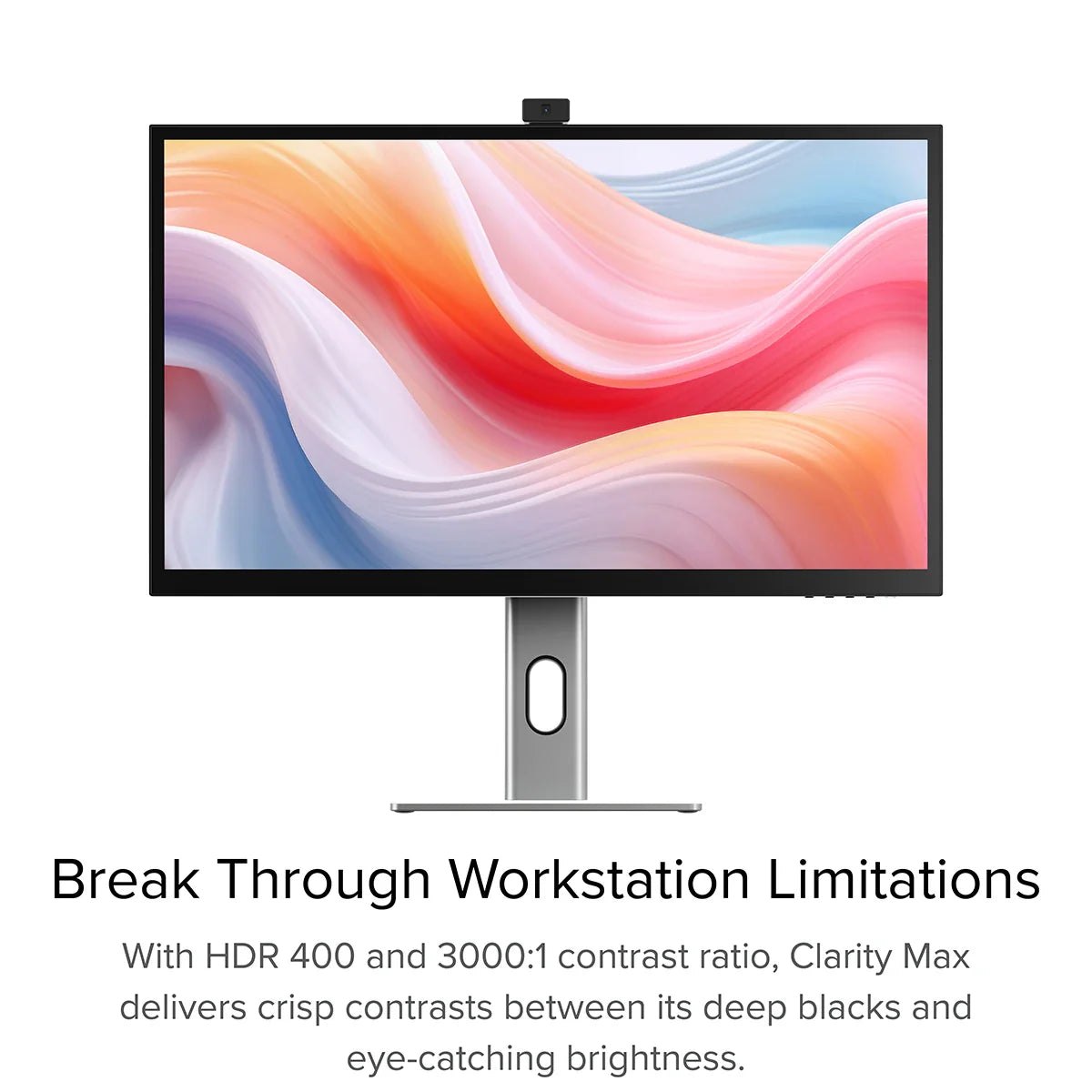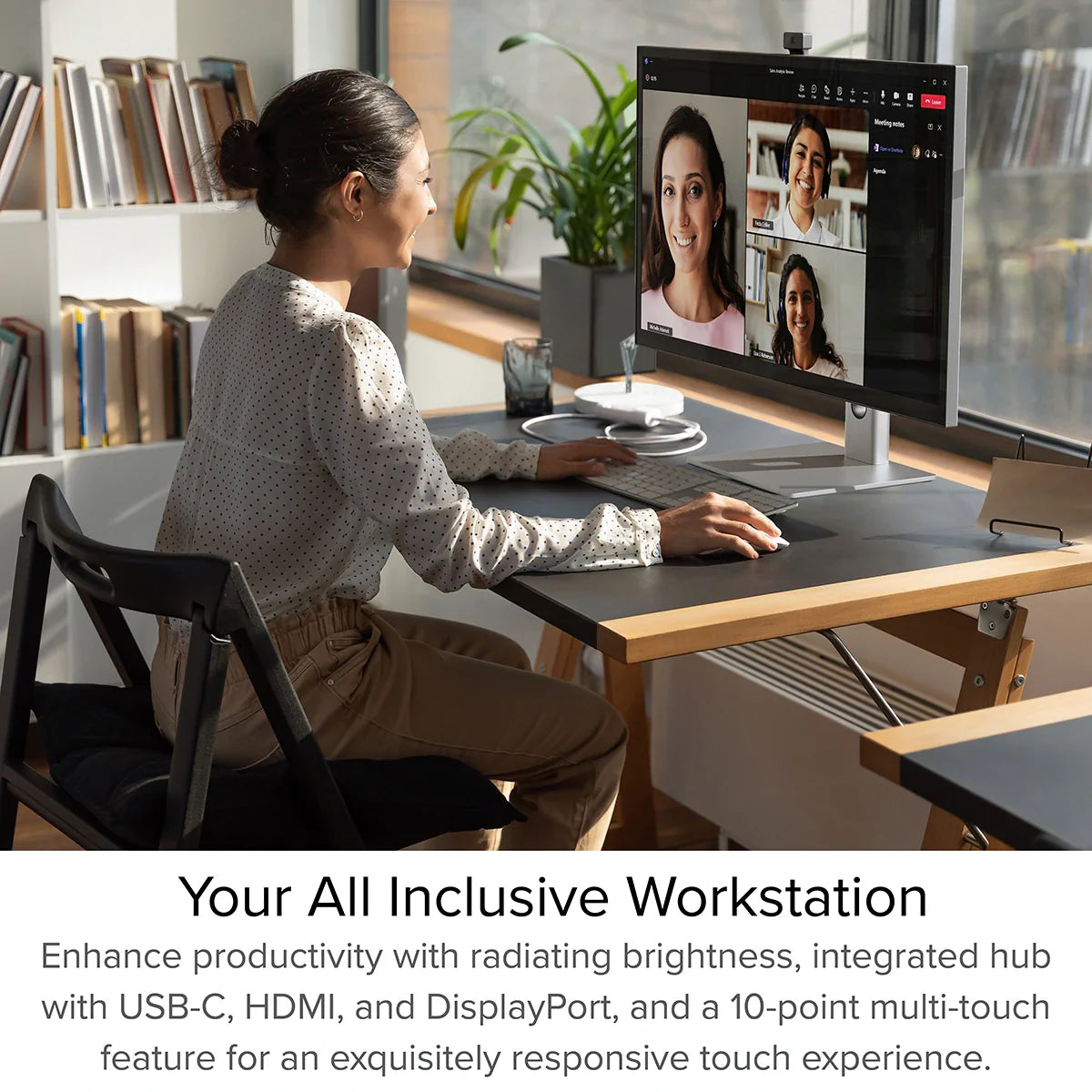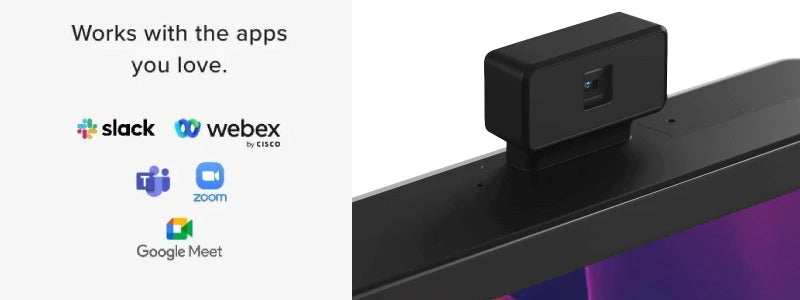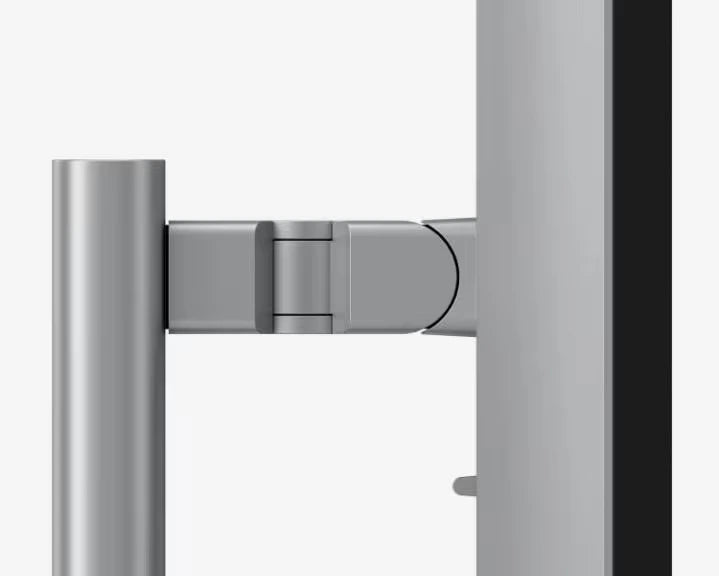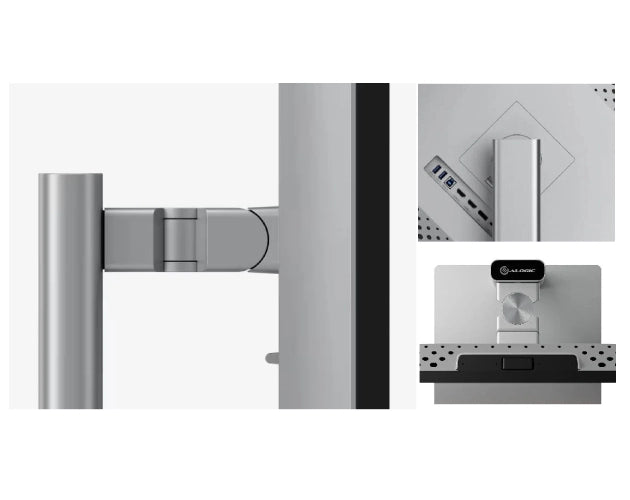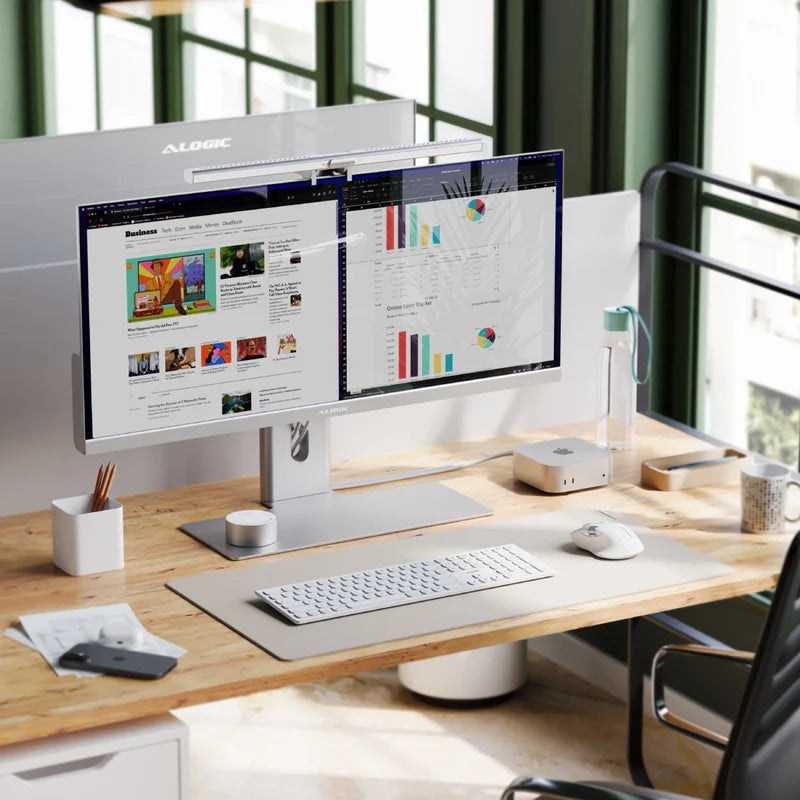Clarity Pro 27" UHD 4K Monitor with 65W PD and Webcam
Clarity Pro 27" UHD 4K Monitor with 65W PD and Webcam
Regular price
$719.99
Sale price
$719.99
Regular price
$899.99
Shipping calculated at checkout.
Couldn't load pickup availability
Specifications
Specifications
Payment & Security
Payment methods
Your payment information is processed securely. We do not store credit card details nor have access to your credit card information.
Slides up when you need it. Disappears when you don't
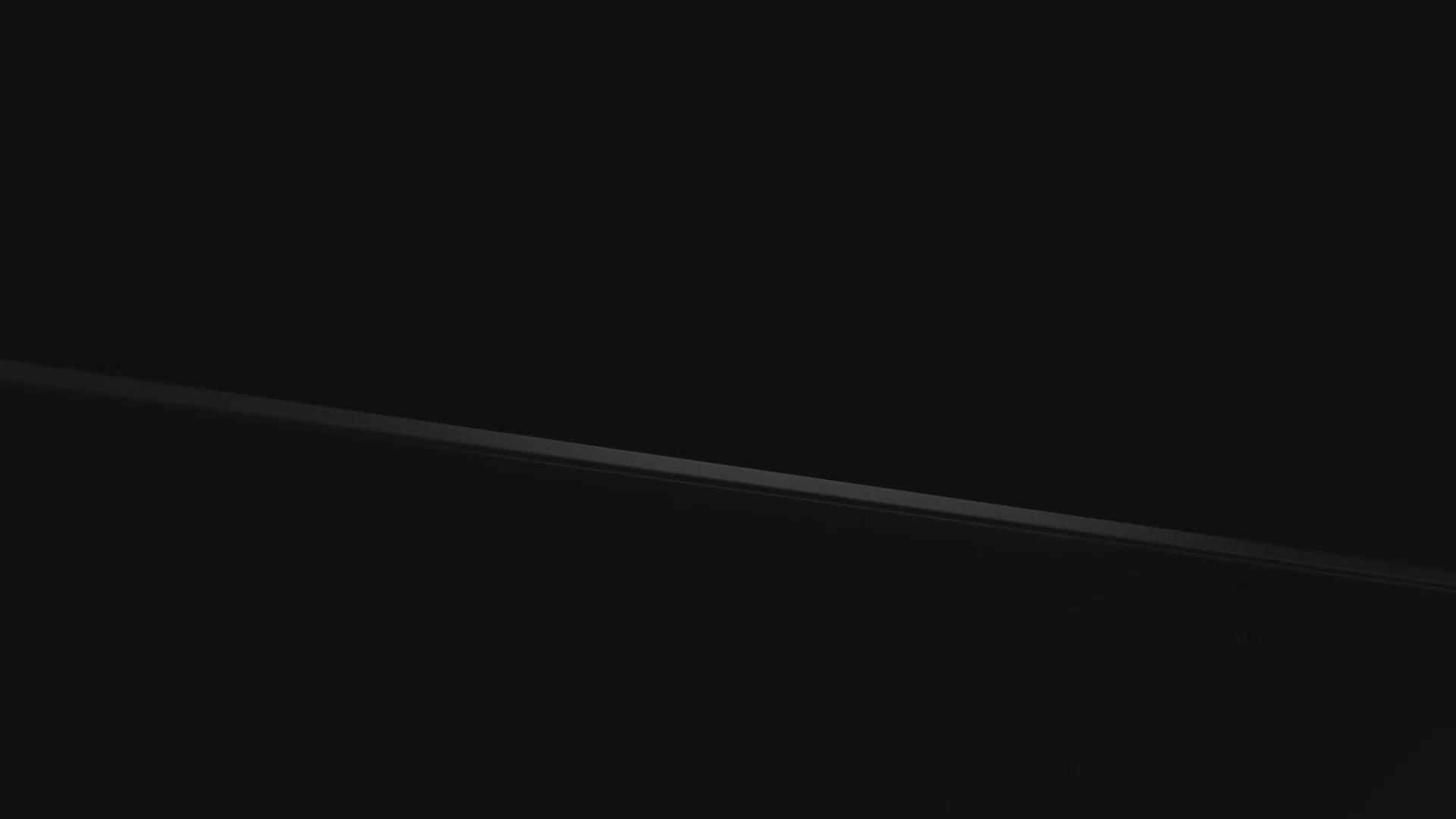
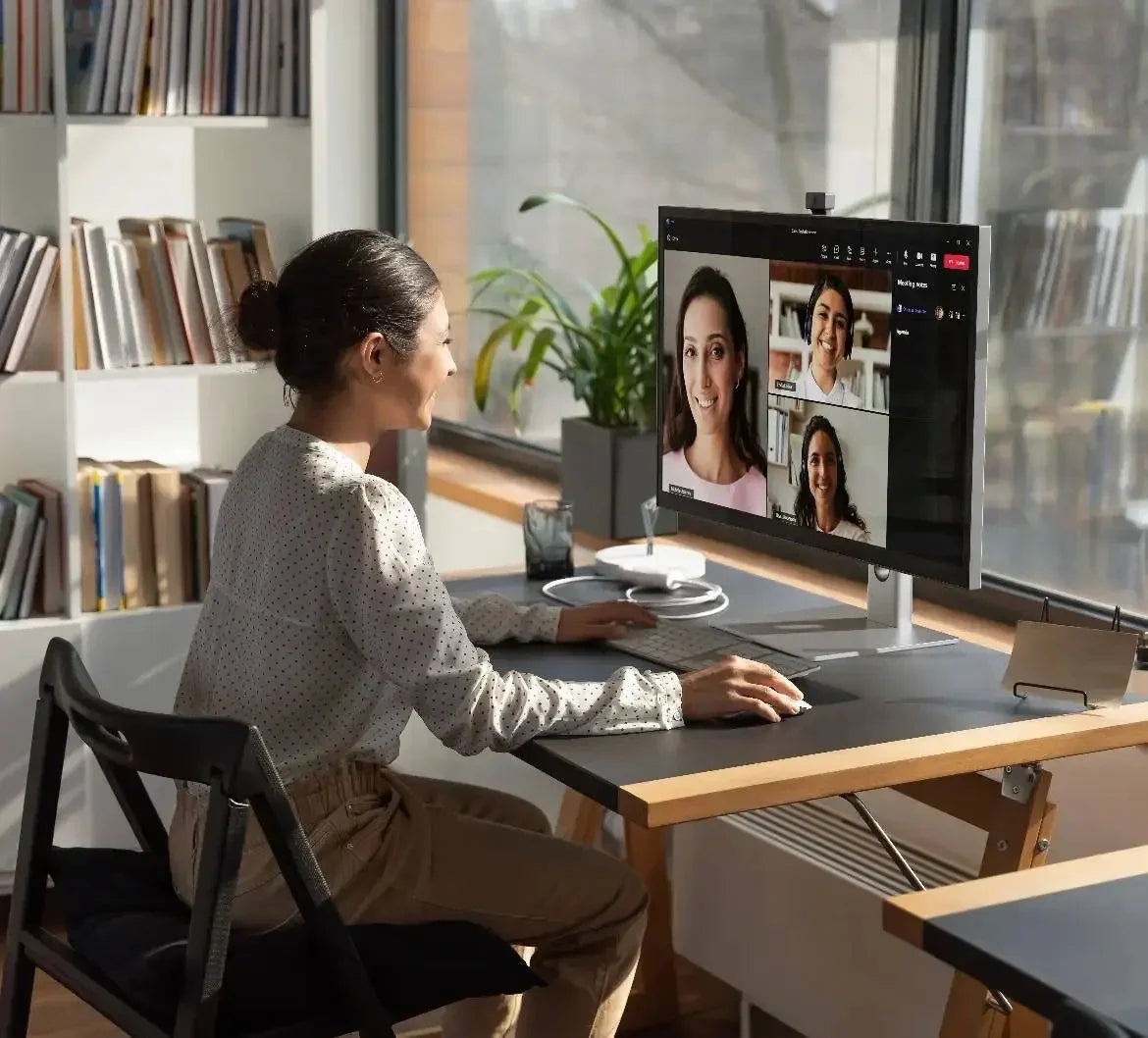
The Canvas You've Always Dreamed of
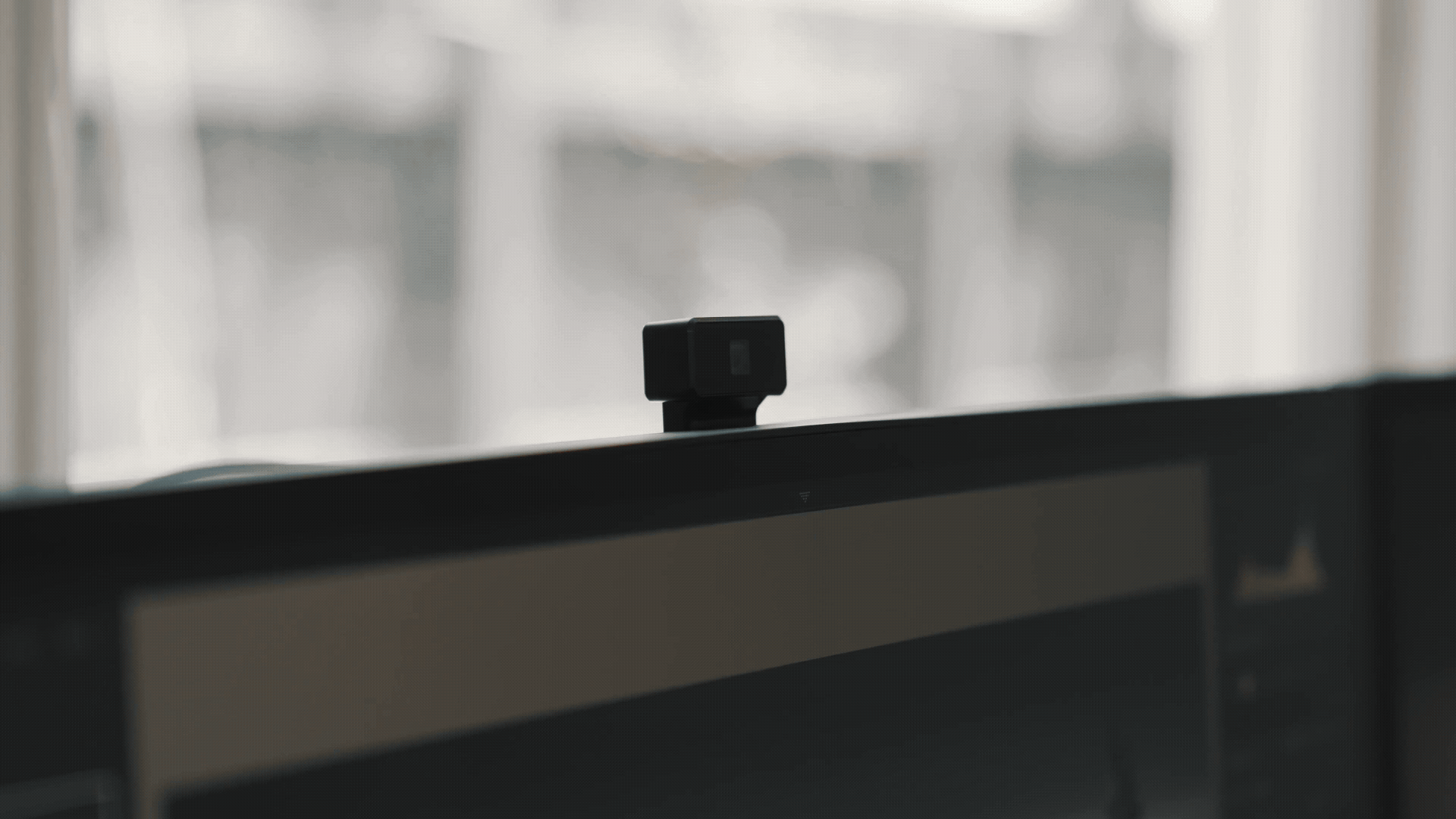
Goodbye Awkward Framing
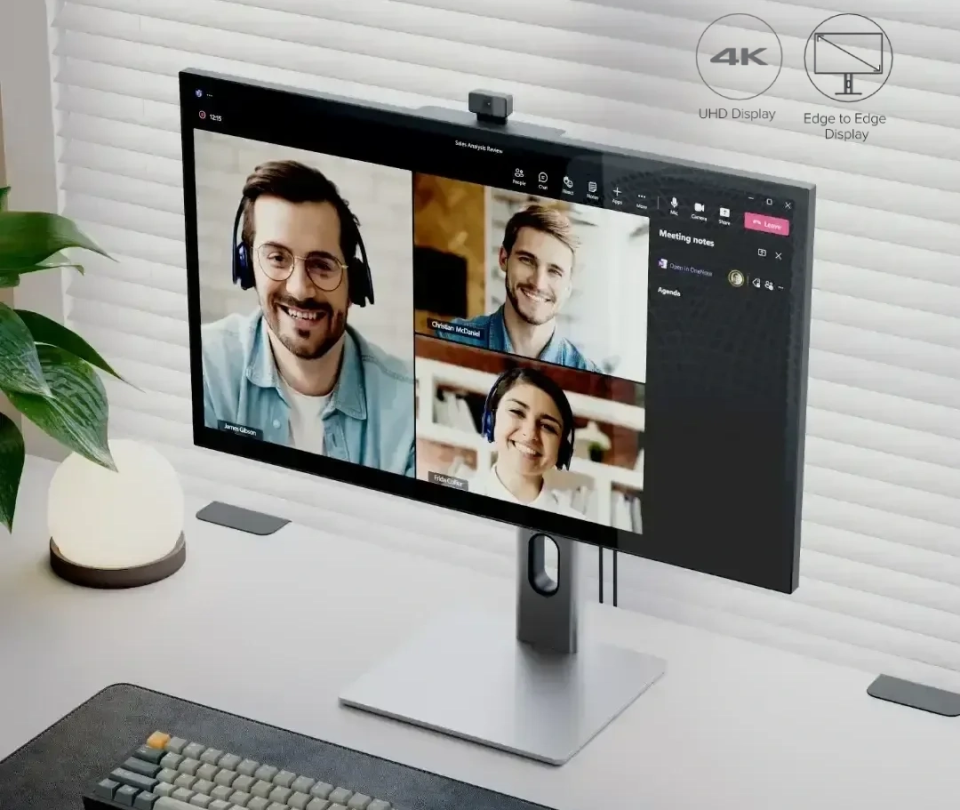
Goodbye Awkward Framing
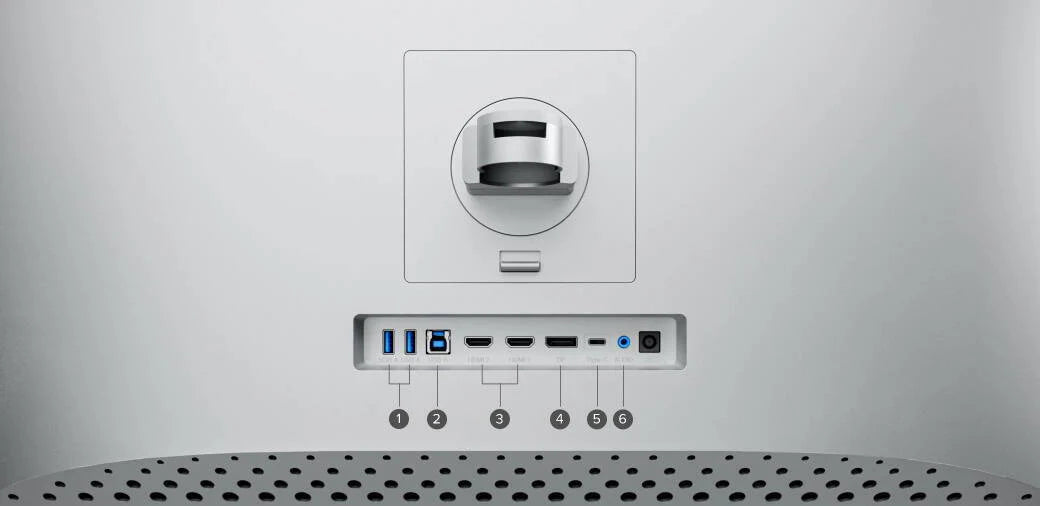
Built-in USB Hub
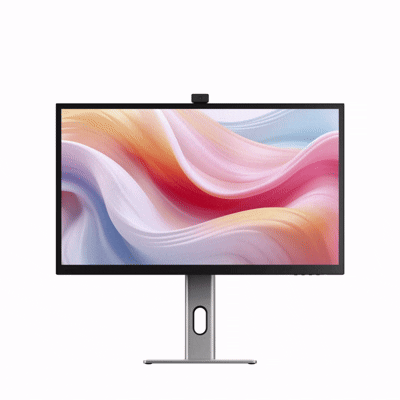
Landscape/ Portrait
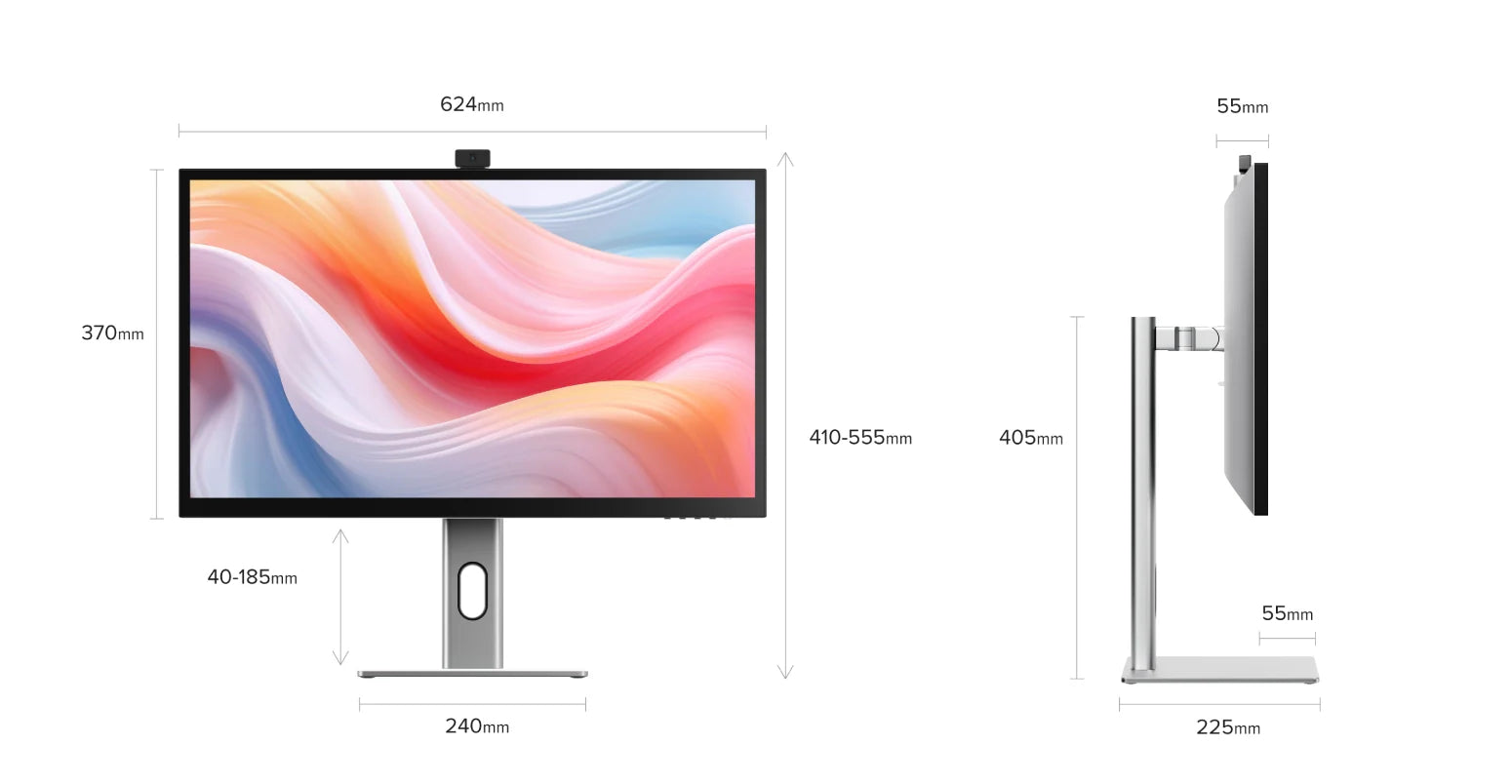
Dimensions and Range of Motion
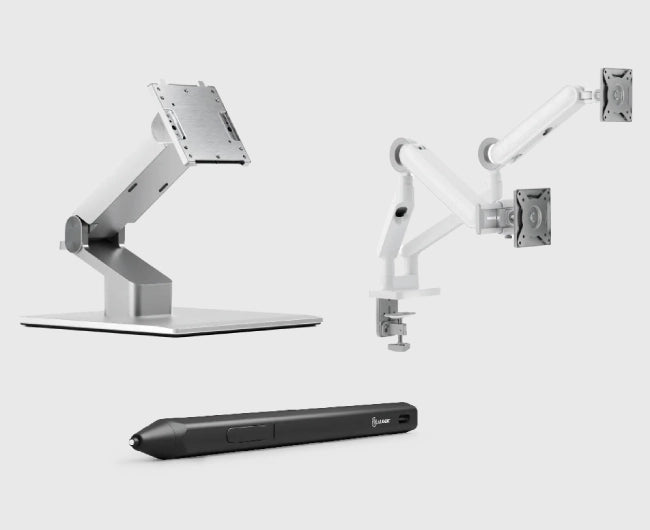
Accessories
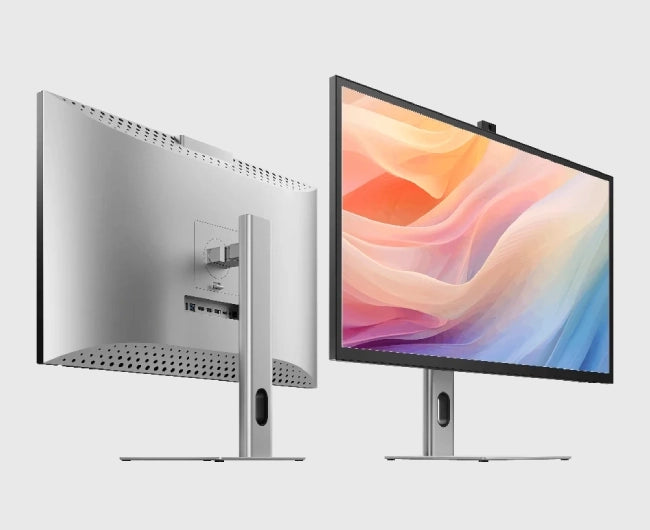
Guides
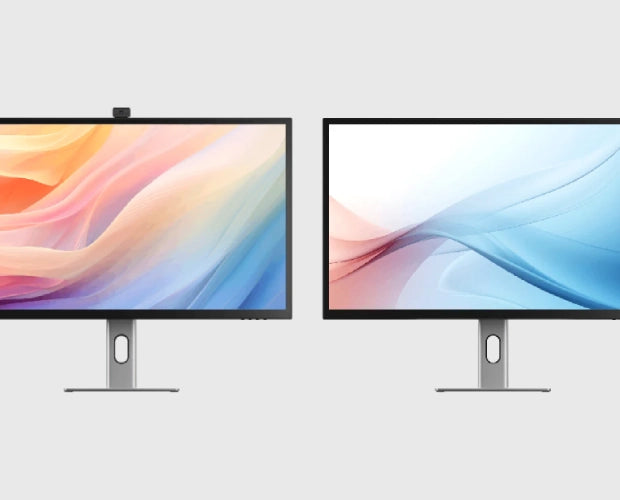
Guides
Frequently Asked Questions
General
What’s the difference between Clarity, Clarity Pro and Clarity Pro Touch?
Pro and Pro Touch are upgraded versions of our Clarity Monitor, which introduce some great extra features while retaining the studio-quality display which makes the original Clarity such a valued tool for digital artists.
The key difference between Clarity and Clarity Pro is that Pro has an 8MP webcam built into the monitor.
This smart webcam automatically slides up from the top when you start a video call, then slides back down when the call ends, keeping the lens clean and protecting your privacy.
Clarity Pro Touch has both the inbuilt webcam and a ‘one-glass solution’ 10-point touchscreen.
The formula is: Clarity (4K studio-quality monitor) + Pro (smart inbuilt webcam) + Touch (touchscreen).
There’s one other difference between Clarity and Pro/Pro Touch – they can’t charge your computer quite as fast, with only 65W passthrough charging compared to Clarity’s 90W. This is because 25W need to be reserved for the webcam.
The key difference between Clarity and Clarity Pro is that Pro has an 8MP webcam built into the monitor.
This smart webcam automatically slides up from the top when you start a video call, then slides back down when the call ends, keeping the lens clean and protecting your privacy.
Clarity Pro Touch has both the inbuilt webcam and a ‘one-glass solution’ 10-point touchscreen.
The formula is: Clarity (4K studio-quality monitor) + Pro (smart inbuilt webcam) + Touch (touchscreen).
There’s one other difference between Clarity and Pro/Pro Touch – they can’t charge your computer quite as fast, with only 65W passthrough charging compared to Clarity’s 90W. This is because 25W need to be reserved for the webcam.
How do I recharge my laptop with Clarity?
To charge your laptop via Clarity (up to 90W Clarity, 65W Clarity Pro or Pro Touch), simply connect it to the monitor via a USB-C cable which supports the required wattage.
However, it does need to plug into a USB-C port compatible with PD (Power Delivery) on your computer.
These can sometimes be identified by the presence of a battery icon next to the port on your laptop, but often you’ll need to check the user manual or manufacturer’s website to figure out which USB-C ports support PD.
All Thunderbolt 3 and 4 ports support PD.
However, it does need to plug into a USB-C port compatible with PD (Power Delivery) on your computer.
These can sometimes be identified by the presence of a battery icon next to the port on your laptop, but often you’ll need to check the user manual or manufacturer’s website to figure out which USB-C ports support PD.
All Thunderbolt 3 and 4 ports support PD.
How do I use Clarity's USB-A ports?
In order for your computer to access devices you've plugged into Clarity's two rear USB-A ports, you need to ensure your computer is:
Connected to Clarity via either:
Connected to Clarity via either:
- 1. Clarity's USB-C port
- 2. Clarity's USB-B port
Clarity’s "Active USB" mode is set to the same USB port you've connected to your computer.
To change Clarity's "Active USB" mode, navigate to "USB Switch" in the "Other Settings" menu of Clarity's main menu.
For example: if your computer is connected to Clarity via USB-C, you would select "Type-C" in the "USB Switch" menu.
Does Clarity support VESA mounting?
Yes, Clarity is compatible with 100x100mm VESA mounts, and includes four mounting screws.
How do I assemble my new monitor?
The following assembly instructions can also be found in your product manual.

1. Remove the stand stem and base from their protective bags. Slot the stem onto the base and fasten via the thumb screw underneath the base.
2. Align the two latches at the top of the stand stem with the notches in your Clarity display, with the display still in the foam housing. Gently push the rear plate into Clarity, it will click into place.
3. Lift your monitor out of the foam, ensuring the display's weight remains supported.

1. Remove the stand stem and base from their protective bags. Slot the stem onto the base and fasten via the thumb screw underneath the base.
2. Align the two latches at the top of the stand stem with the notches in your Clarity display, with the display still in the foam housing. Gently push the rear plate into Clarity, it will click into place.
3. Lift your monitor out of the foam, ensuring the display's weight remains supported.
Troubleshooting
I've connected to Clarity via USB-C. Why aren't I getting any video?
In order to connect to Clarity via USB-C, it must be plugged into a USB-C port compatible with "DP Alt Mode" - or a Thunderbolt 3/4 port.
DP Alt Mode compatible USB-C ports are sometimes marked with a "DP" symbol, but they are often identical to regular USB-C ports. If none of your USB-C ports have symbols next to them, you'll need to consult the product manual or the manufacturer's website to find out which ports are DP Alt Mode compatible.
If your computer does not support USB-C DP Alt Mode or Thunderbolt 3/4, we recommend connecting via HDMI or DisplayPort. If your laptop does not support these, you can connect using an ALOGIC Universal Dock, which leverage DisplayLink technology to deliver video over non-DP Alt Mode USB-C connections.
DP Alt Mode compatible USB-C ports are sometimes marked with a "DP" symbol, but they are often identical to regular USB-C ports. If none of your USB-C ports have symbols next to them, you'll need to consult the product manual or the manufacturer's website to find out which ports are DP Alt Mode compatible.
If your computer does not support USB-C DP Alt Mode or Thunderbolt 3/4, we recommend connecting via HDMI or DisplayPort. If your laptop does not support these, you can connect using an ALOGIC Universal Dock, which leverage DisplayLink technology to deliver video over non-DP Alt Mode USB-C connections.
When I wake my computer from sleep mode, Clarity doesn’t come back on.
In some cases, it’s possible for Clarity not to recognize the wake-up signal from a connected computer. This issue occurs most often when Clarity is connected to a computer through a dock.
To resolve the issue, restart Clarity by pressing the power button twice – it should recognize the connected device as part of its boot-up sequence.
If this issue persists, we recommend trying the following steps to isolate the issue: Connect Clarity directly to your computer
Try connecting with a different cable or port.
ie. Use DisplayPort instead of USB-C
Update your computer’s operating system.
If your problem reoccurs and these these steps do not help resolve it, please contact ALOGIC support ( support.ca@alogic.co).
To resolve the issue, restart Clarity by pressing the power button twice – it should recognize the connected device as part of its boot-up sequence.
If this issue persists, we recommend trying the following steps to isolate the issue: Connect Clarity directly to your computer
Try connecting with a different cable or port.
ie. Use DisplayPort instead of USB-C
Update your computer’s operating system.
If your problem reoccurs and these these steps do not help resolve it, please contact ALOGIC support ( support.ca@alogic.co).
Why can't I select HDR?
If you cannot select HDR (it's not appearing in the "Picture Settings" menu), this is likely due to one of two reasons:
1. You're connecting to Clarity with USB-C. HDR is only available when connected via HDMI or DisplayPort.
2. You're using the monitor in SRGB, Uniformity or Adobe RGB mode. Both of these video presets are designed to provide perfect colour reproduction over a limited colour gamut. HDR produces colours outside these limited gamuts and thus can't be used at the same time. You can re-enable HDR by switching back to "Standard" mode in the Professional Settings menu.
1. You're connecting to Clarity with USB-C. HDR is only available when connected via HDMI or DisplayPort.
2. You're using the monitor in SRGB, Uniformity or Adobe RGB mode. Both of these video presets are designed to provide perfect colour reproduction over a limited colour gamut. HDR produces colours outside these limited gamuts and thus can't be used at the same time. You can re-enable HDR by switching back to "Standard" mode in the Professional Settings menu.
Clarity isn't switching between landscape and portrait when I rotate the screen!
If Clarity is not automatically switching between portrait and landscape mode when you physically rotate the screen, it is likely because the screen's "Gravity Sensor" has been disabled.
Reenable this in "Other Settings" menu to use this feature.
Reenable this in "Other Settings" menu to use this feature.
Why isn't my laptop charging?
Not all laptop USB-C ports support charging using USB-C Power Delivery. Many laptops only support charging on one of their USB-C ports.
Ensure you connect the charging cable to a port on the laptop which supports charging.
Ensure you connect the charging cable to a port on the laptop which supports charging.
Why aren't Clarity's speakers working?
In order to use Clarity's speakers, you must select "27F34KCPD" as your active sound output device in your computer's settings.
Additionally, Clarity's speakers will not function if you have an audio device connected to Clarity's rear 3.5mm audio port.
Additionally, Clarity's speakers will not function if you have an audio device connected to Clarity's rear 3.5mm audio port.
Webcam
What resolution is Clarity Pro’s webcam?
Clarity Pro’s webcam has an 8MP sensor, or 8 million pixels. This is roughly equivalent to a 4K image.
Does Clarity Pro’s webcam have a microphone?
Yes, Clarity Pro’s webcam includes an array of four microphones to capture sound.
What programs does Clarity Pro’s smart webcam support?
Clarity Pro’s smart webcam slides up and down whenever your computer’s operating system (macOS, Windows, Chrome) attempts to access a webcam feed, not specific integrations with each application.
As a result, the webcam will work with any program attempting to access a webcam. This includes videoconfering programs such as:
Microsoft Teams
Skype
Google Meet
Slack
Cisco Webex
Zoom
GoTo Meeting
As well as livestreaming programs like:
Open Broadcaster Software (OBS)
Xplit
Streamlabs
As a result, the webcam will work with any program attempting to access a webcam. This includes videoconfering programs such as:
Microsoft Teams
Skype
Google Meet
Slack
Cisco Webex
Zoom
GoTo Meeting
As well as livestreaming programs like:
Open Broadcaster Software (OBS)
Xplit
Streamlabs
How do I adjust the webcam’s framing?
To adjust the framing of your webcam, you first need to slide the webcam up.
Open a program which requires the webcam – on Windows 11 we recommend the “Camera” app or “Photo Booth” on macOS.
Open this application and switch the active camera to Clarity Pro’s – this can be done via the “Camera” menu in Photo Booth or hitting the “Switch Camera” button in Camera – see below.
Once you’ve activated Clarity Pro’s webcam, it will slide up out of the monitor. You can now adjust its vertical framing using the scroll wheel on the rear of the camera.
Open a program which requires the webcam – on Windows 11 we recommend the “Camera” app or “Photo Booth” on macOS.
Open this application and switch the active camera to Clarity Pro’s – this can be done via the “Camera” menu in Photo Booth or hitting the “Switch Camera” button in Camera – see below.
Once you’ve activated Clarity Pro’s webcam, it will slide up out of the monitor. You can now adjust its vertical framing using the scroll wheel on the rear of the camera.
My computer can't see Clarity Pro's webcam!
For Clarity Pro's webcam to function, your computer needs to be connected to either the monitor's USB-C or USB-B port.
Then you need to ensure that's the active USB port is set to the same - either USB-C or USB-B. This can be set via the "USB-Switch" setting of the monitor's "USB Options" menu.
If these two are correct and your can't see your Clarity Pro's webcam listed in your system's available webcams (listed as either 27C4KPDW or 27C4KPDWT), restart the monitor and your computer.
If the webcam still doesn't appear, please contact ALOGIC support: support@alogic.co and we'll help you resolve your issue.
Then you need to ensure that's the active USB port is set to the same - either USB-C or USB-B. This can be set via the "USB-Switch" setting of the monitor's "USB Options" menu.
If these two are correct and your can't see your Clarity Pro's webcam listed in your system's available webcams (listed as either 27C4KPDW or 27C4KPDWT), restart the monitor and your computer.
If the webcam still doesn't appear, please contact ALOGIC support: support@alogic.co and we'll help you resolve your issue.
Clarity Pro's webcam isn't sliding back down!
1. First, do not try to push Clarity's webcam back into the chassis. This can permanently damage the motors.
2. Then ensure that any program accessing your webcam has been closed. This can include messaging, livestreaming, audio recording and video capture applications.
3. Ensure Claritys active USB is set to the USB cable connecting your computer and Clarity, USB-C or USB-B. You can find this option in Clarity's menu by navigating to USB-Options --> USB Switch.
4. If Clarity's webcam doesn't retract after closing these programs - try reconnecting Clarity to your computer by unplugging and replugging the cord.
5. If this doesn't work, try reboot Clarity, then your computer.
6. Try plugging connecting Clarity to a different computer.
7. If Clarity's webcam is still stuck in the out-position, please contact our expert technical support at support@alogic.co for advice on next steps.
2. Then ensure that any program accessing your webcam has been closed. This can include messaging, livestreaming, audio recording and video capture applications.
3. Ensure Claritys active USB is set to the USB cable connecting your computer and Clarity, USB-C or USB-B. You can find this option in Clarity's menu by navigating to USB-Options --> USB Switch.
4. If Clarity's webcam doesn't retract after closing these programs - try reconnecting Clarity to your computer by unplugging and replugging the cord.
5. If this doesn't work, try reboot Clarity, then your computer.
6. Try plugging connecting Clarity to a different computer.
7. If Clarity's webcam is still stuck in the out-position, please contact our expert technical support at support@alogic.co for advice on next steps.


 Canada
Canada
 USA
USA Australia
Australia UK
UK Europe
Europe New Zealand
New Zealand Japan
Japan Singapore
Singapore UAE
UAE India
India

















